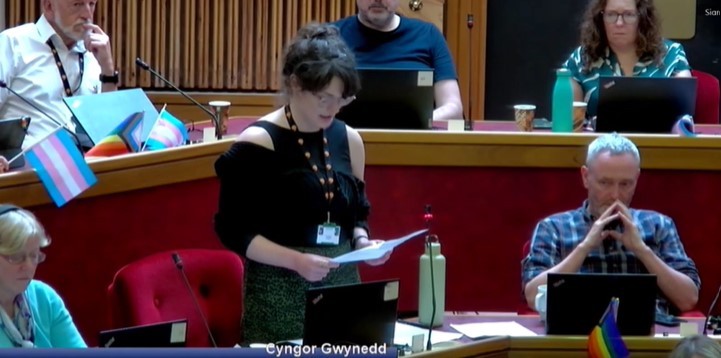A NORTH Wales council is “considering the implications” of the recent Supreme Court ruling over the definition of a woman.
Judges recently unanimously ruled that a woman is defined by biological sex under equality laws.
The judgement has implications for workplaces, public services, schools and other organisations.
The council says it is”fully committed” to supporting the rights of women and trans people, and is now looking at its policies, guidelines and procedures.
During Cyngor Gwynedd’s full council meeting on Thursday, May 1, a question was raised by Cllr Gruff Williams.
He asked: “In the context of the latest decision by the Supreme Court, what arrangements are in place to confirm that women in Gwynedd have access to places and opportunities of all kinds for women only?”
The Cabinet Member for Corporate Services and Legal and the Welsh Language, Councillor Llio Elenid Owen, replied:
“The council is in the process of considering the implications of the ruling taking into account further information, e.g. the Equality and Human Rights Commission’s Interim Guidance, published on 25 April.”
The Commission aims to update its guidance after consultation, and it will go before the Westminster Government before the summer recess.
According to the Commission “many people” have questions about the ruling but the updated guidance would provide “more clarity,” Cllr Owen, said.
Gwynedd would “look to see if its policies, guidelines and procedures. “aligned” with the ruling,” she said.
“We expect for the guidance to finally go before the government before the summer, to receive further clarity and guidance on the situation.”
She wanted to “draw attention” to what the Supreme Court had noted, saying the ruling was “not a win for either side.”
It was “very important to emphasise” that the legal definition, within the Equality Act “did not reduce trans people’s legal rights against discrimination”.
“Gender reassignment was one of nine characteristics protected under the Equality Act, 2010,” she added.
In a supplementary question Cllr Williams asked: “What facilities and arrangements would need to be secured, and where and when will we see the change to reflect the ruling?”
Cllr Owen replied again, that like every other organisation, further information was needed to fully answer.
She wanted to take the chance to emphasise “our support and stance with the trans community”.
Cllr Owen said: “Everybody should be free to select their own gender identity, that should be something we respect, not a reason to exempt trans people from society.
“We are totally fully committed to supporting women’s rights and the rights of trans people.
“Lots of questions are being raised and there were wider conversations following the ruling over ‘where this left’ inter-sex and non-binary people who did not conform with the definition.
It was important that the voices of those affected were included in the discussions, she said.
“There is a real concern that some people could take advantage of this ruling, and use it to express prejudice against the trans community,” who she said were “already vulnerable”.
She feared that “some in Gwynedd could misuse the ruling, to make the lives for communities who lived on the borders, more difficult.”
“We’re here as councillors to support all Gwynedd’s residents to live in harmony, respect and dignity.
“As a person who grew up as a woman, I don’t feel that trans people’s rights have been taken from my rights at all.”

















